Tag: CALS

Cornell Food Systems Global Summit
From 3D-printed phyllo pastries to petite peppers packing powerful nutritional punches, innovation and interdisciplinary collaboration will be key ingredients forming the future of food. Academic experts and industry insiders gathered at Cornell University on December 8 for a global summit…

TCi 2013-2014 Annual Report
TCi 2013-2014 Annual Report
We are pleased to share this year’s annual report! To learn more about our accomplishments and understand where we hope to go next, be sure to check out the Research Highlights and Beyond 2014 sections. Many…
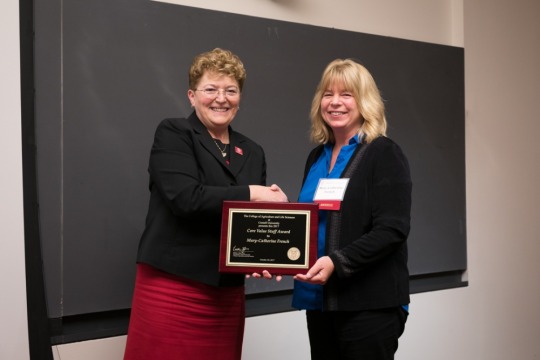
Mary-Catherine French honored for stewardship
Mary-Catherine French, administrative assistant in the Charles H. Dyson School of Applied Economics and Management, earned the Core Value Staff Award for Stewardship at the Research, Extension and Staff Award ceremony Oct. 30. She was nominated by her colleagues in…

Bridging the gap: Soil health in Ithaca and India, from lab to field to lab
Bihar, 2018:
The thick fog blanketed the city making it impossible to see any of the buildings down below. I’d been warned of the trouble with fog in the northern part of India but the inability to see anything beyond…
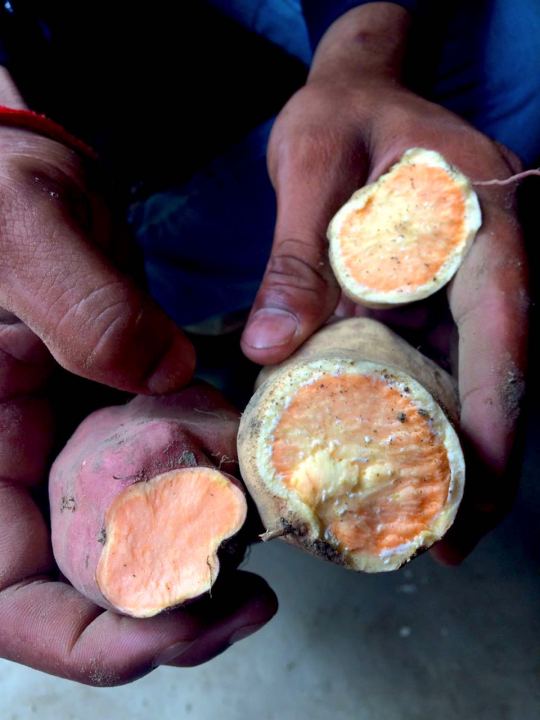
Farmers’ decision making and perceived benefits of orange-fleshed sweet potato adoption
“He says orange-fleshed sweet potato has made his family healthier,” my translator, Shaktikar says as I scribble notes in a small notebook. I make sure not to disturb the iPhone pointed towards the farmer we’re interviewing. It is recording every…

Micronutrient transmission from soils to humans
They say “we are what we eat” but can it be that we are what the soil is? Soil forms the foundation of the food we eat. It also serves as the main reservoir of the water we drink, making…

Antibiotic Resistance: Fighting a Multi-Headed Demon
The direct public health ramifications of antibiotic resistance are truly enormous, with estimated losses in hundreds of millions of lives and trillions of dollars, when accounting for prolonged illness, death, production losses and negative impacts on food security and livelihoods.…
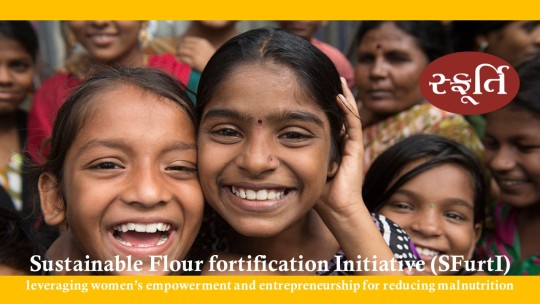
Fortification to tackle iron deficient anemia – Evidence from a community-based nutrition program in Gujarat
Iron-deficiency anemia (IDA) is one of the most frequent nutritional disorders, affecting up to 1.6 billion people worldwide [i]. Bioavailable iron is essential to synthesize hemoglobin, the oxygen-transporting protein. The shortage of iron depletes hemoglobin, resulting in various detrimental health…
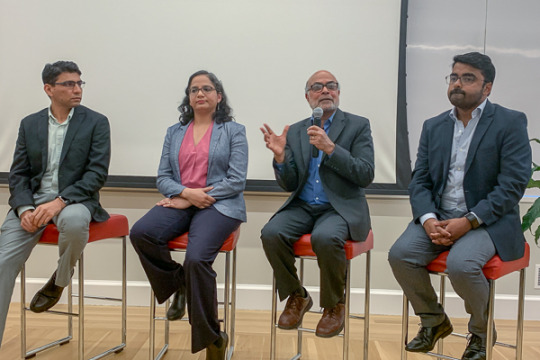
Tata-Cornell Institute’s co-authors launch new book on food systems in India
Co-authors from the Tata-Cornell Institute for Agriculture and Nutrition and the Dyson School have published a new book, Transforming Food Systems for a Rising India, as a reflection of the institute’s key intellectual results and research works undertaken within the…
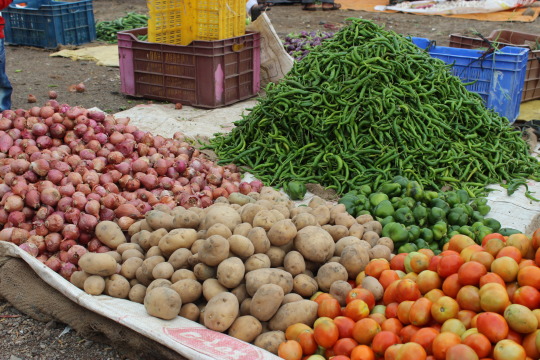
Op-Ed: We’ll Be What We Eat
With a five-fold increase in food grain production since 1947, India has moved away from its dependence on food aid to become a net food exporter. However, the country still shares a quarter of the global hunger burden.
By 2011,…

